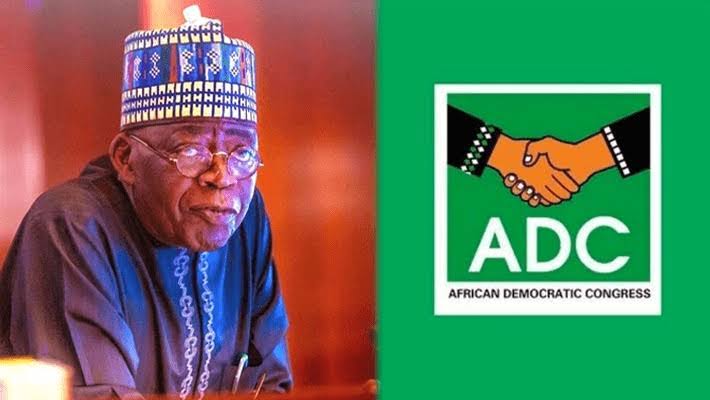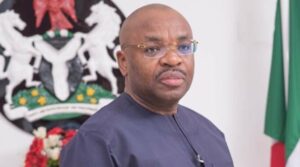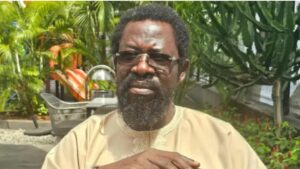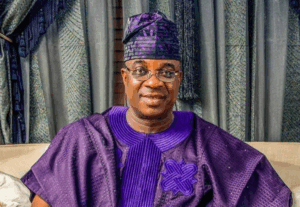ADC demands 10-year loan audit, warns Tinubu’s borrowing could push debt beyond N200trn

The African Democratic Congress (ADC) has called for a comprehensive audit of Nigeria’s external loans over the last decade.
The party described President Bola Tinubu’s borrowing approach as “fiscal vandalism” following the National Assembly’s approval of a fresh $21 billion loan request.
In a statement signed by Bolaji Abdullahi, its national publicity secretary, the ADC said the new debt could push Nigeria’s total public debt beyond N200 trillion before the end of 2025.
It warned that the loans were piling up without any corresponding economic transformation.
The party accused President Tinubu of worsening Nigeria’s debt crisis.
“Under President Buhari, Nigeria borrowed an average of ₦4.7 trillion per year, and even that caused widespread concern. But under President Tinubu, borrowing has jumped to N49.8 trillion per year,” the statement said.
“In just two years, this administration has borrowed more than ten times what Buhari borrowed in the same timeframe.
“At this rate, Nigeria’s total public debt will crash through N200 trillion before the end of the year.”
According to the ADC, Tinubu’s borrowing spree is a calculated decision to mortgage the country’s future just to cover up the failures of today.
“Since the APC took over in 2015, our total public debt has grown from N12.6 trillion to over N149 trillion in 2025,” the statement reads.
“Over $35 billion has been borrowed from external lenders alone in the last decade of the APC. This is nearly twelve times more in just ten years Our debt to the World Bank has tripled.
“What we owe in Eurobonds has grown eleven times over. And now, this government wants to borrow even more, pushing our foreign debt ceiling to $67 billion
“This reckless borrowing, repeated year after year, with no plan to repay it, and no effort to use it productively, will leave our children repaying debts that they did not incur or benefit from.”
‘NATIONAL ASSEMBLY NOT ASKING THE RIGHT QUESTIONS’
The party also criticised the national assembly for what it called a rubber-stamp attitude towards the executive.
“So, what exactly are these loans used for? This is the question that Nigerians expect the National Assembly to ask,” the party said.
“Instead, it has continued to approve these loans without asking the hard questions, without demanding a plan, and without standing up for the Nigerian people.”
It also faulted arguments comparing Tinubu’s borrowing to Buhari’s based on dollar figures.
“Supporters of this government like to argue that Tinubu’s borrowing is smaller in dollar terms, just $1.7 billion annually, compared to Buhari’s $4.15 billion. But that argument collapses the moment we look at the exchange rate,” the party said.
“With the naira now in free fall, again thanks to this administration’s poor policy choices, these same loans are costing the country far more.”
The ADC claimed Tinubu’s loans translate to N25.5 trillion annually in today’s exchange rate — far higher than Buhari’s average of N2.2 trillion.
It described the country’s current debt status as “a deepening debt trap created by economic mismanagement and a collapsed currency.”
The ADC said while the debt burden continues to rise, public services have not improved.
“The debts have continued to mount, but infrastructures have remained poor, universities are still grossly underfunded, hospitals are still ill-equipped and electricity supply are as poor as ever,” the statmemt reads.
“Small businesses can no longer access credit. Investors are losing confidence and pulling out.
“And because over 60 percent of our national income is now used to service debt, the government is turning to ordinary Nigerian families and taxing them beyond their limits.”
It said other countries were working to reduce their debts, while Nigeria was increasing its own.
The ADC demanded full disclosure of all loan agreements signed since 2015, including terms, interest rates, repayment timelines, and beneficiaries






